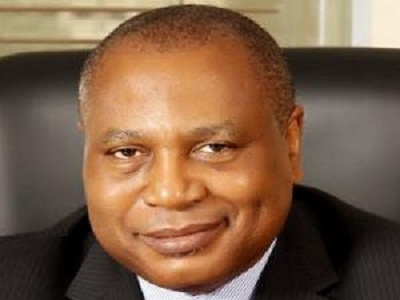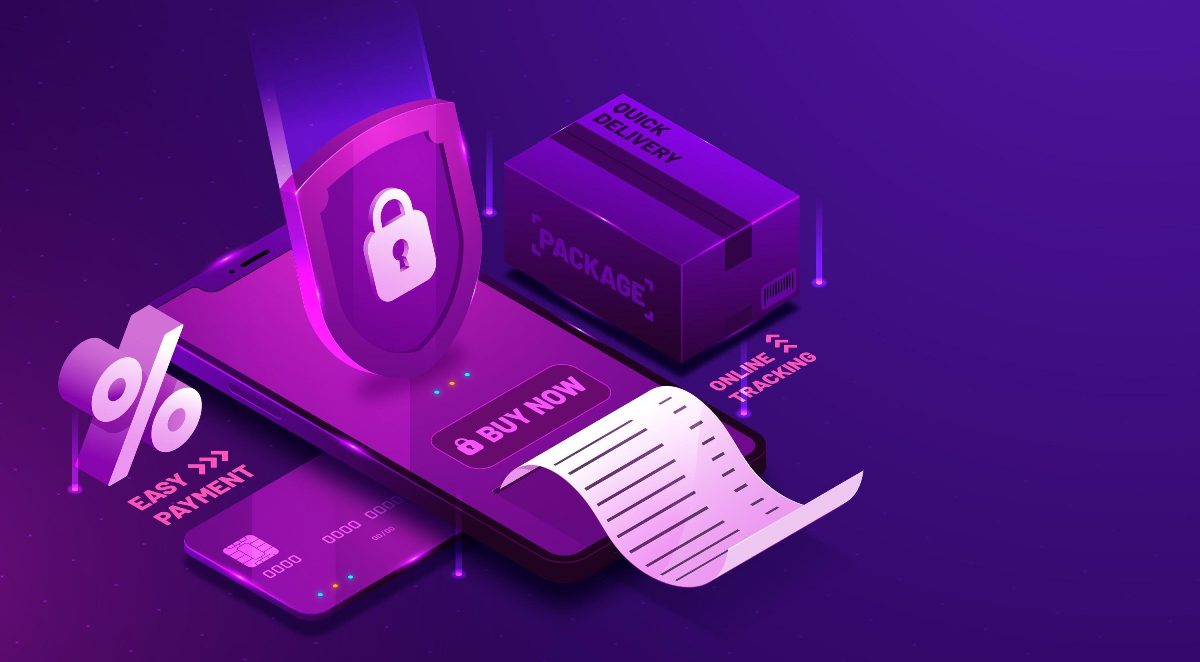Telecom
Zoom Mobile, Starcomms, Others Were Programmed to Fail

Nigeria mobile code-division multiple application (CDMA) mobile sectors is going through tough times and there appears no end in sight soon since government is not forthcoming with either a bail-out plan nor working out any mergers/acquisition scheme for the ailing firms.
Collins Onuegbu, a systems analysts and managing director of Signal Alliance Ltd, a full IT services company in Lagos told Nigeria CommunicationsWeek that the CDMA sector was programmed to fail when the Nigerian Communications Commission (NCC) initially adopted regional licensing for the CDMA operators; while opening up the market of universal licensing for the GSM mobile operators.
“The CDMAs are failing because their business model was flawed from the beginning. From the very beginning when the NCC decided to give them regional licences and the GSM operators were offered universal licence, it was evident the CDMAs will fail.”
“Nigerians are very mobile people and the very essence of the mobile phone is for you to connect wherever you go and there is no way you’d buy a phone that guarantees you connection only in Lagos and whenever you’ re out of town, you needed another system. So why not buy the one that connects you continually and leave the other one out of budget? So you see, the CDMAs cannot compete with that model of business in an environment like ours,” said Onuegbu.
He stated that elsewhere where copper (cables) are used to connected fixed lines, the model for regional licensing could work, but not in Nigeria where all the cables have either been dug up through road constructions or stolen by vandals.
Onuigbo noted that since the GSM operators had a heads-start, it opened windows of financing for them too which the CDMAs were shut out from.
“The CDMAs because of their regional operating licence couldn’t access bank financing or further investment for expansion and the resultant effect is that they’re dying one after the other.”
Starcomms PLC, the only telecom operator on the floor of the Nigeria Stock Exchange (NSE), is also not spared the meltdown as they struggle to remain afloat.
A recent attempt to merge with three other operators to form a medium size CDMA operator appear also to have hit a brick wall.
“I think Starcomms went to the stock market rather too early. They hadn’t spent enough time in the market to authenticate their real value. They needed to have been tested and trusted by investors. So that affected their market value and capitalization drive,” Onuegbu enthused.
Signal Alliance also has strategic affiliation with Microsoft, SAP, Cisco, CA Technologies and was recently rated the 27th fastest growing (non-listed) company in Nigeria by Michael Porter’s All World Network Nigeria Fast Growth 50 list.
Telecom
Mart Networks Rolls Out Tailored Cybersecurity Solution for Fintechs

Mart Networks, a leading cybersecurity distributor across Africa and the Middle East, has unveiled a specialized cybersecurity package tailored for fintech firms.

The solution, powered by Invinsense, Infopercept’s unified cybersecurity platform, aims to address the growing security needs of fintechs operating in highly regulated environments.
According to Moiz Maloo, Managing Director at Mart Networks, fintech companies face unique security challenges due to stringent regulatory requirements and increasing threats. “Most fintechs don’t have the luxury of multiple internal security teams or system integrators. With this focused offering, we’re providing an all-in-one platform with managed services built specifically for the fintech environment,” he said.
The offering integrates four key components: Invinsense XDR and Managed Detection & Response for real-time monitoring, Exposure Management for vulnerability detection, Security Compliance Management to support fintechs in meeting regulatory standards, and Cybersecurity Awareness Programs to empower teams against cyber threats.
Furthermore, the package includes deep application visibility, ensuring fintech-specific applications remain secure through Invinsense SIEM’s custom log ingestion capabilities. To reinforce protection, Infopercept’s engineering team will provide code-level fixes, patches, and infrastructure security enhancements.
With the rise of cloud-based fintech operations, the solution also incorporates full-stack cloud security, including API security, Cloud Infrastructure Entitlement Management (CIEM), and Application Security Posture Management (ASPM).
Mart Networks’ move underscores the growing importance of cybersecurity in Africa’s fintech sector, as financial services become increasingly digital and susceptible to evolving cyber threats.
Telecom
Equinix Expands Digital Footprint in Nigeria with Launch of LG2.3 Data Center

Equinix, Inc. the world’s digital infrastructure company™, has officially opened its latest data center expansion in Lagos. Called LG2.3, the facility will support Nigeria’s growing digital transformation efforts, providing state-of-the-art colocation and secure interconnection solutions which will empower businesses across the region.

It also signifies Equinix’s unwavering dedication to advancing Nigeria’s position in the global digital economy, reinforcing the company’s commitment to the region.
As part of the inauguration, Bruce Owen, President of EMEA at Equinix, along with other Equinix executives, led the ribbon-cutting ceremony at the newly expanded site. In addition to an official visit to the Governor of Lagos State, Equinix hosted an exclusive customer engagement event, bringing together key customers and partners from Nigeria’s business and technology sectors.
Attendees discussed shared successes and Equinix’s role in facilitating digital transformation, while also connecting directly with Bruce Owen for insights into how Equinix’s solutions drive innovation and business agility in the region.
Equinix executives also took part in a tree-planting ceremony, symbolising Equinix’s continued investment in sustainable initiatives across the globe and highlighting the company’s broader goal of reducing its carbon footprint while supporting greener practices across its operations worldwide.
Speaking about the expansion, Bruce Owen, President of EMEA at Equinix said “Nigeria is a crucial market for Equinix. Today’s opening is a clear demonstration of our continued commitments to invest and grow digital infrastructure that will benefit the many thousands of businesses in Nigeria and on the continent as a whole.
“I am deeply encouraged by the enthusiastic partnerships and innovations emerging from this dynamic region, which continue to inspire our commitment to Nigeria’s digital and sustainable future.”
Adding to this, Wole Abu, Managing Director of Equinix West Africa, highlighted the critical role of data centers in driving economic growth stating “Data centers continue to play a pivotal role in driving economic development in Nigeria, serving as critical infrastructure that supports digital transformation and economic growth.
“As governments and enterprises increasingly acknowledge their significance, global demand for data center capacity is poised to rise. While Africa’s demand for data solutions is still evolving compared to more mature markets, the continent is demonstrating strong potential for digital adoption and innovation.
“To meet this growing need, Equinix is actively advancing three major data center projects in Nigeria, with future expansion plans for Ghana, Côte d’Ivoire, and South Africa.”
Equinix remains steadfast in its mission to enable secure, scalable, and sustainable digital growth for economies across the world.
Telecom
African Women Hit Hardest as Mobile Internet Gender Gap Persists

African women remain among the most digitally excluded globally, with smartphone affordability and digital literacy among the key barriers. New data from the 2025 GSMA Mobile Gender Gap Report, launched recently, reveals a persistent global gender gap in mobile internet use across low- and middle-income countries (LMICs).

It further notes that literacy, digital skills, safety, and affordability of data also remain critical barriers. The report highlights that 885 million women across these regions still do not use mobile internet, with nearly 60% of them living in Sub-Saharan Africa and South Asia.
While mobile internet is the primary way women in LMICs access the internet, offering critical lifelines to health, education, and financial services, the pace of female adoption has stalled, leaving 235 million fewer women than men connected.
Claire Sibthorpe, head of digital inclusion at GSMA, highlighted that the gender gap had narrowed significantly between 2017 and 2020, but progress flatlined in recent years.
Although 2023 brought a slight improvement, restoring the gap to 15%, 2024 saw minimal change, with the gap settling at 14%.
The disparity is most severe in Sub-Saharan Africa, where women are 29% less likely than men to use mobile internet.
“It’s disheartening that progress in reducing the mobile internet gender gap has stalled. The digital divide is driven by deep-rooted socio-economic and cultural factors that disproportionately impact women,” said Sibthorpe.
GSMA projects that closing the gender gap by 2030 could add $1.3 trillion to GDP across LMICs and deliver $230 billion in revenue to the mobile industry.
The report, funded by the UK FCDO, Sida, and the Gates Foundation, stresses the urgent need for targeted investment and policy action to bridge the digital divide and ensure that no woman is left offline.
“The mobile internet gender gap is not going to close on its own. It is driven by deep-rooted social, economic, and cultural factors that disproportionately impact women,” said Sibthorpe.

 E-Financial1 day ago
E-Financial1 day agoAccess Holdings Sets Benchmark in Fraud Prevention With ₦193.5Bn Tech Investment

 E-Financial1 day ago
E-Financial1 day agoMTN’s Digital Lending Arm Disburses $592m Loans in Q1

 E-Financial1 day ago
E-Financial1 day agoAccess Bank, Deloitte Partner to Equip SMEs with Tools for Growth

 News1 day ago
News1 day agoSERAP Asks Ojulari, NNPC CEO to Account for Missing N500Bn or Face Legal Action

 E-Financial1 day ago
E-Financial1 day agoFG Verifies 2m Households for Cash Transfer

 E-Business1 day ago
E-Business1 day agoFG Launches Online Citizenship, Business Management Platform

 General News1 day ago
General News1 day agoFG Launches Online Citizenship, Business Management Portal to Enhance Transparency, Service Delivery

 General News1 day ago
General News1 day agoNOTAP Urges South Eastern Entrepreneurs to Embrace Franchising as Business Model




























